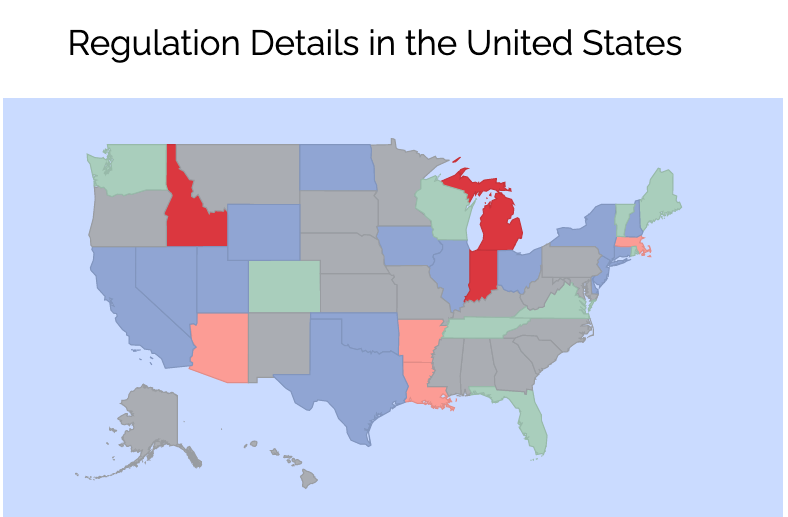Updated Map of US Surrogacy Policies Highlights Patchwork of State Regulation

The United States does not regulate surrogacy at a federal level, leaving each state to determine its own policies. The situations range from states with no laws that address surrogacy to those that prohibit it completely: some states have detailed legislation that addresses numerous aspects of surrogacy contracts, while in others the precedents set in court cases are the main guide. The resulting policy patchwork can be confusing to navigate for anyone interested in the legal status of surrogacy in the US, and particularly for anyone considering entering into a surrogacy contract here.
The Center for Genetics and Society recently partnered with the National Center for Lesbian Rights (NCLR) to update the US policy map on Surrogacy360, a web resource that provides comprehensive and accurate information about the complexities of cross-border surrogacy. The changes reflect recently passed legislation in US states and expand the information available by incorporating case law and articulating the nuances in each state. The map now provides the most comprehensive and accurate representation of US surrogacy policy available online.
The map illustrates whether surrogacy contracts can be legally enforced in each state. Additional information is available in pop-up boxes showing whether compensation is legal, if same sex couples and single intended parents are recognized as legal parents, and whether intended parents must be married. The accompanying narrative [pdf] has links to the relevant legislation and case law, and goes into greater detail on each of the criteria shown on the map.
Here is a break-down of state laws:
-
31 states and Washington D.C. regulate surrogacy through statutes (legislation) and/or case law (court cases)
-
3 states prohibit surrogacy altogether
-
19 states do not address whether surrogacy contracts can be enforced in court
-
3 states exclude same sex couples from being intended parents, and in 2 additional states it is unclear whether same-sex intended parents can use surrogacy or male same-sex parents are excluded
-
8 states require intended parents to be married
-
13 states allow a single intended parent to enter into enforceable surrogacy contracts
The US is a major destination for people from other countries seeking to have children through surrogacy, usually to avoid laws prohibiting surrogacy in their home country, some of which are specific to same sex couples. The map and accompanying narrative provide information regarding legal rights in the US, but intended parents from both outside and inside the US must consult with legal counsel in the state where the surrogate lives (and their own state if they live in the US) for confirmation of the most up-to-date regulation and legal interpretation.
What is Surrogacy360? Intended parents often face difficulty accessing accurate information about the complexities of cross-border surrogacy. Surrogacy360 fills that gap with materials free of commercial influence. We provide comprehensive resources that address risks to children, egg providers, surrogates, and parents who may be particularly vulnerable, such as LGBTQ and single people. See our Recommended Principles and Standards for Engaging in International Commercial Surrogacy Arrangements
For more information about considering surrogacy arrangements during the pandemic, see COVID-19 Advisory on International Surrogacy Arrangements and Ethics of Surrogacy During COVID-19 Pandemic.



